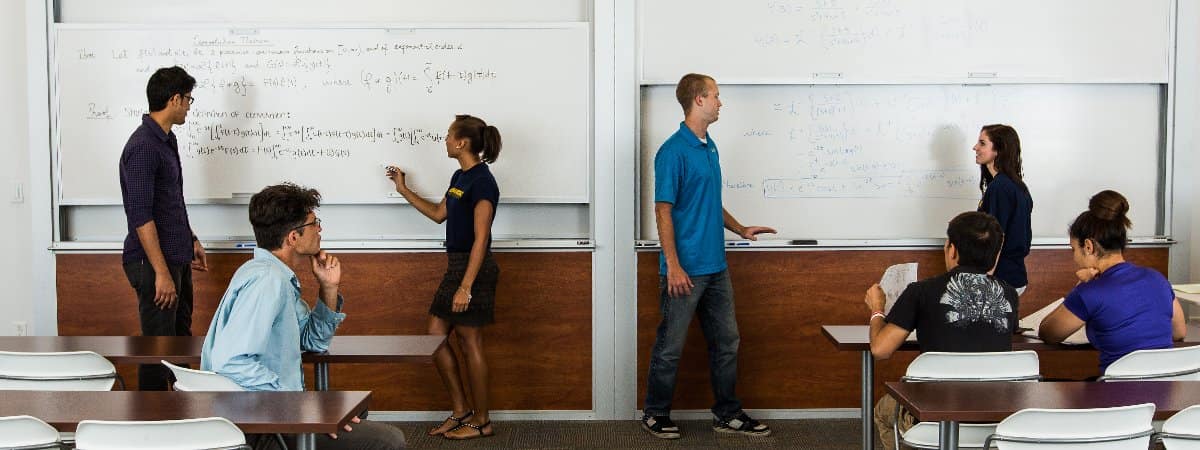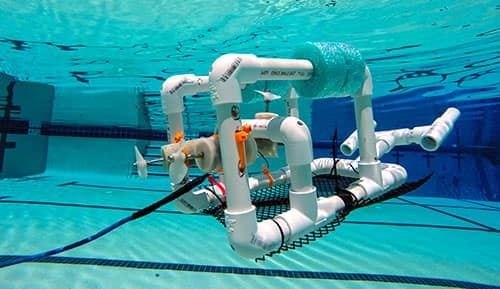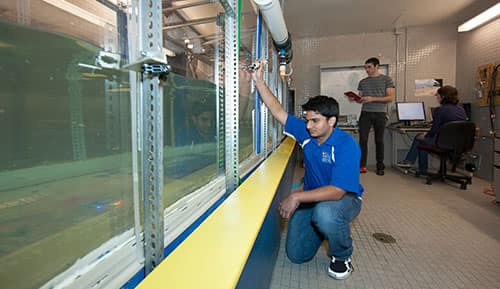
The Department of Mathematics offers a Bachelor of Science in Computational Mathematics degree with two tracks (Data Science and Engineering Applications) as well as two minors, Applied Mathematics and Computational Mathematics. We also offer a Master of Science in Data Science, currently one of the most in-demand career fields.
Virtually every Embry-Riddle student — whether training to be a pilot, engineer, scientist, or manager — will pass through the Department of Mathematics while earning a degree. The flexibility of the Computational Mathematics degree allows well-prepared students to pursue dual majors, increasing their career options and enhancing their marketability to potential employers. Some students will gain foundational math skills, while others pursue innovative programs in pure and applied mathematics. The degree in Computational Mathematics allows students to blend mathematical theory and computational techniques to address problems that arise in a variety of scientific disciplines.
In keeping with Embry-Riddle's hands-on approach to most disciplines, the Department of Mathematics emphasizes applications for mathematics in areas such as computing, fluid mechanics, and weather forecasting, and the work is often project-based. Classes tend to be small, so students can work closely with faculty members who enjoy sharing their passion for math. Collaboratively, the department’s students and faculty engage in a number of varied research areas, with emphasis on physical applications that are often described by partial differential equations.
Many courses involve an expanded use of modeling and data visualization tools to help students understand mathematical ideas in a scientific context. These concepts culminate in the senior capstone course experience as it brings together elements of analysis, computation, and experimentation in a team learning environment that complements the student’s area of concentration.
Graduates of the Computational Mathematics program have options in numerous career fields, including business, engineering, and operations research. They can explore job opportunities as actuaries, financial analysts, and systems engineers, to name a few. Many of the students elect to pursue graduate school in diverse programs that only enrich their valuable Embry-Riddle Computational Mathematics degree.
Research is supported numerically and experimentally in the Nonlinear Wave Laboratory, which contains a wave tank with data-acquisition hardware for computation. This is one of the most advanced Wave Laboratories of its kind in the United States.
Learn More About our Department Degrees
Latest Research Projects
Learn about the Research being done by Department of Mathematics faculty and students.
Labs and Facilities
The Department of Mathematics utilizes a state-of-the-art Nonlinear Wave Laboratory to conduct several research projects.


